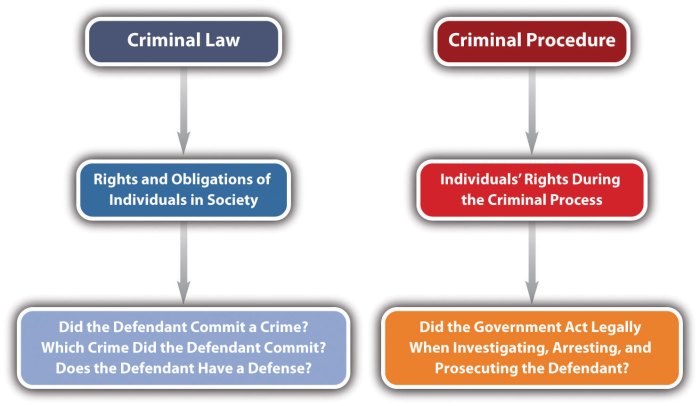Embark on a captivating journey through the labyrinthine world of criminal justice with our comprehensive criminal process crossword answer key. Delve into the intricacies of investigations, trials, and post-conviction proceedings, unlocking the secrets of this complex legal landscape.
From the initial stages of crime investigation to the finality of sentencing, this guide unravels the multifaceted nature of the criminal process, providing an in-depth understanding of the key players, evidentiary considerations, and constitutional safeguards that shape its every step.
Criminal Process: Overview: Criminal Process Crossword Answer Key

The criminal process is the series of steps that are taken from the time a crime is committed until the final disposition of the case. The stages of the criminal process include:
- Investigation
- Pre-trial
- Trial
- Post-trial
Key players involved in the criminal process include:
- Law enforcement officers
- Prosecutors
- Defense attorneys
- Judges
- Jurors
Evidence plays a crucial role in the criminal process. Evidence can be used to prove the guilt or innocence of the defendant. Evidence can be physical, such as a weapon or DNA sample, or it can be testimonial, such as the testimony of a witness.
Investigative Stage, Criminal process crossword answer key
The investigative stage begins when a crime is reported to law enforcement. Law enforcement officers will then investigate the crime and gather evidence. The methods used to investigate crimes include:
- Interviews
- Surveillance
- Searches
- Forensic analysis
Once the evidence has been gathered, it will be analyzed by forensic scientists. Forensic scientists can use a variety of techniques to analyze evidence, such as DNA analysis, fingerprint analysis, and ballistics analysis.
Pre-Trial Stage
The pre-trial stage begins when the defendant is arrested and charged with a crime. The defendant will then be arraigned, which is a hearing at which the defendant is informed of the charges against them and their rights. The defendant will also be given the opportunity to enter a plea.If
the defendant pleads not guilty, a preliminary hearing will be held. At a preliminary hearing, the prosecution will present evidence to show that there is probable cause to believe that the defendant committed the crime. If the judge finds that there is probable cause, the defendant will be bound over for trial.During
the pre-trial stage, the defendant may also be able to negotiate a plea bargain with the prosecution. A plea bargain is an agreement in which the defendant agrees to plead guilty to a lesser charge in exchange for a lighter sentence.
Trial Stage
The trial stage begins when the jury is selected. The jury will then hear the evidence and decide whether the defendant is guilty or not guilty.There are two types of trials: bench trials and jury trials. In a bench trial, the judge decides the case without a jury.
In a jury trial, the jury decides the case.The rules of evidence govern what evidence can be admitted at trial. The rules of evidence are designed to ensure that the trial is fair and that the jury only hears relevant and reliable evidence.
Post-Trial Stage
The post-trial stage begins when the jury reaches a verdict. If the defendant is found guilty, the judge will sentence the defendant. The sentence can include imprisonment, probation, or a fine.The defendant may also appeal the verdict. An appeal is a request to a higher court to review the verdict of the lower court.
If the appeal is successful, the higher court may overturn the verdict or send the case back to the lower court for a new trial.
Constitutional Safeguards
The Constitution provides a number of safeguards to protect individuals accused of crimes. These safeguards include:
- The right to a fair trial
- The right to an attorney
- The right against self-incrimination
- The right to confront witnesses
These safeguards are essential to ensuring that the criminal process is fair and that the rights of the accused are protected.
Emerging Trends
The criminal process is constantly evolving. Some of the emerging trends in the criminal process include:
- The use of technology
- The impact of mass incarceration
- The efforts to reform the criminal process
These trends are likely to have a significant impact on the future of the criminal process.
User Queries
What are the key stages of the criminal process?
The criminal process typically involves the following stages: investigation, pre-trial, trial, and post-trial.
What is the role of evidence in the criminal process?
Evidence plays a crucial role in the criminal process, as it is used to establish the guilt or innocence of the accused.
What are the constitutional rights that protect individuals accused of crimes?
Individuals accused of crimes are protected by a number of constitutional rights, including the right to a fair trial, the right against self-incrimination, and the right to an attorney.